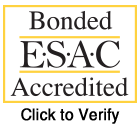In the dynamic landscape of corporate transactions, stock acquisitions stand out as a particularly strategic avenue for acquiring a company. However, this method, where one company buys the majority or all of another company’s shares to gain control, is extremely nuanced and demands meticulous preparation to perform effectively. Among these preparations, due diligence is paramount to sidestep the potential pitfall of inheriting unknown liabilities, particularly in the realm of human resources.
The Importance of HR Due Diligence in Stock Acquisitions
When navigating a stock acquisition, HR due diligence is a non-negotiable necessity.
A methodical analysis is crucial for determining whether the target company adheres to HR regulations and embodies best practices in its operations. Beneath the surface, HR due diligence can uncover the target company’s compliance with labor laws, the state of employee relations, and the effectiveness of the human resource management systems in place.
The significance of this process is underscored by the reality that acquiring a company is synonymous with inheriting its entire HR ecosystem — warts and all. This includes not only the tangible assets and promising talent, but also any existing or potential HR liabilities. These liabilities can range from unresolved employee disputes and pending litigation, to non-compliance with wage and hour laws and inadequate training practices. Each of these elements, if not identified and addressed during due diligence, can translate into significant legal, financial, and reputational costs for the acquiring company.
Additionally, the due diligence process can illuminate the cultural and operational DNA of the target company, offering critical insights into the workforce’s dynamics, morale, and productivity. Understanding these aspects is invaluable for assessing fit, anticipating integration challenges, and planning for a unified corporate culture post-acquisition. In essence, HR due diligence isn’t just about uncovering risks; it’s also about identifying opportunities for growth, making it an indispensable component of a successful stock acquisition strategy.
Key Areas of HR Due Diligence
Wage and Hour Audit
A wage and hour audit ensures that employees are correctly classified as exempt or non-exempt from overtime pay. This review safeguards against non-compliance with overtime pay regulations and other wage-related laws, mitigating financial and reputational risks.
1099 vs. W2 Classification
Understanding the distinction between 1099 (independent contractors) and W2 (employees) classifications is crucial since misclassification can result in significant legal and financial repercussions. A careful review in this area helps avoid penalties and ensures adherence to tax and employment laws.
Employee Disputes and EPLI Claims
Investigating past employee disputes and Employment Practices Liability Insurance (EPLI) claims offers insights into the company’s HR practices and potential areas of liability. This scrutiny can reveal patterns of behavior or management issues that could pose risks to your organization.
Recent Employee Terminations
A close look at recent employee terminations and the reasons and processes behind them can uncover potential legal exposures or morale issues within the workforce. Understanding these dynamics is essential for a smooth transition and integration process.
Compliance Training Verification
Verifying compliance training, particularly in jurisdictions with specific requirements (e.g., California), is imperative. This ensures the acquired company has been proactive in educating its workforce about harassment, discrimination, safety, and other critical HR policies.
Strategies for Managing HR Risks in Stock Acquisitions
Effectively managing HR liabilities during a stock acquisition is only possible after you first identify what the specific HR issues are. This initial step is critical for unearthing potential compliance issues, cultural misalignments, and hidden liabilities. Identifying these elements early on enables a company to make informed decisions about proceeding with the acquisition.
Once potential HR risks are identified, a targeted action plan should be crafted. This plan might involve reevaluating the acquisition’s financial terms to reflect the cost of mitigating identified HR issues. Alternatively, it could include negotiating specific indemnities or warranties with the seller to cover any potential HR-related exposures. Ensuring that compliance corrections are implemented prior to the acquisition’s finalization is another prudent move, which may involve updating policies, reclassifying employees, or settling outstanding disputes.
The establishment of a seamless line of communication between the legal, HR, and acquisition teams is crucial for executing the above strategies. This fosters a holistic understanding of the acquisition’s HR implications and ensures that all parties are aligned on the strategy for mitigating risks. Regular updates can facilitate this coordination, ensuring that every team member is informed and engaged throughout the process.
Furthermore, leveraging external expertise, such as consulting with HR due diligence professionals or legal advisors specializing in employment law, can provide additional layers of insight and protection. These experts can offer nuanced perspectives on complex issues, ensuring that the acquiring company is fully prepared to address the multifaceted nature of HR risks in stock acquisitions.
Choose Aspen HR for Your HR Due Diligence
For companies considering stock acquisitions, the complexities of HR due diligence require expertise and an exacting approach. As an industry-leading PEO with significant expertise in acquisitions, Aspen HR is an ideal partner in this critical phase, offering comprehensive HR due diligence services designed to spotlight and mitigate potential HR risks and liabilities.
Before finalizing your transaction, let Aspen HR conduct a thorough HR audit, revealing any HR risks and liabilities and ensuring a clear path forward. To learn more about how Aspen HR can support your acquisition strategy and safeguard your investment, schedule a consultation today.






